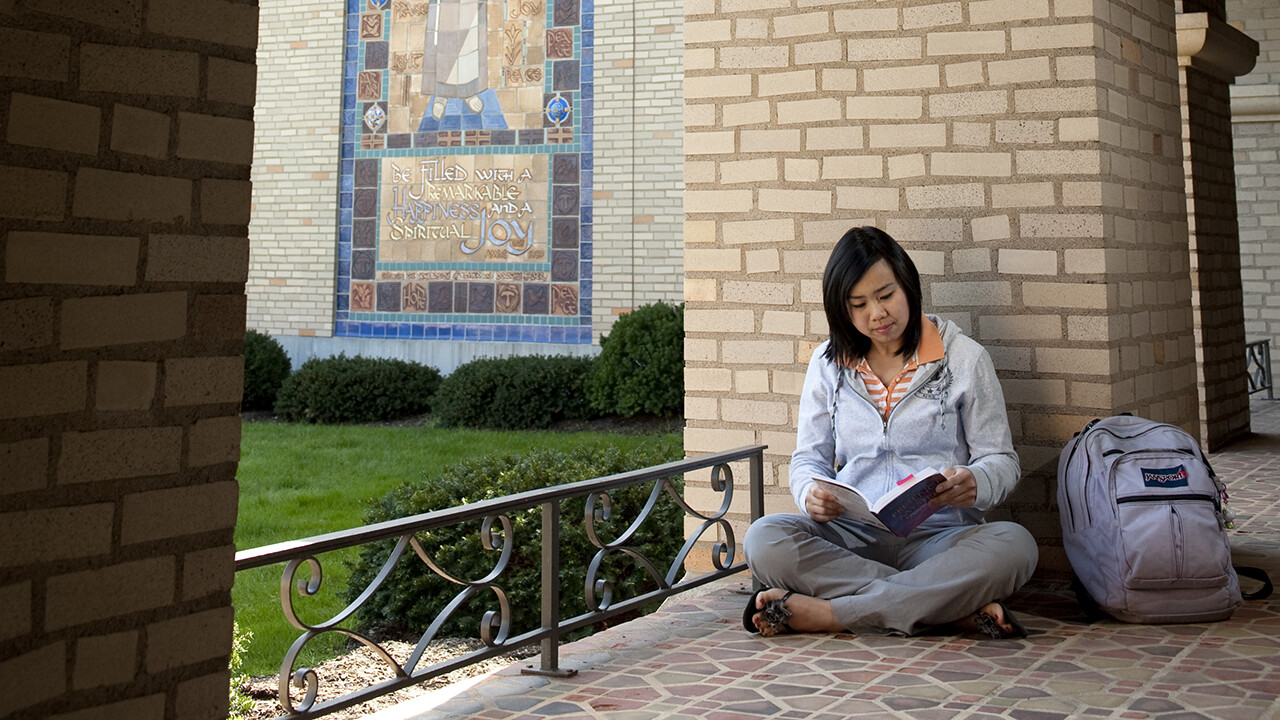In many U.S. cities, the criminal justice system is re-examining its purpose and duties. With a diverse population of individuals from various cultural, ethnic and economic backgrounds, the criminal justice system must first examine the role of mental health in criminal behavior and recidivism. According to Statistics from the Bureau of Justice Statistics (BJS), more than half of those incarcerated in the United States have mental health issues. With the increased demand for healthcare and mental health services and their application to the criminal justice system, the U.S. Bureau of Labor Statistics forecasts continued growth in this employment sector.

Criminal and Social Justice/Psychology Dual Major
Bachelor of Arts
Individuals can achieve their Bachelor of Arts degree with a criminal and social justice and psychology dual major. Through this unique and high demand degree program, students can learn the curriculum from both majors and complete the degree requirements in four years as opposed to the double major, which would typically require five total years.
Graduates who have earned a bachelor’s degree in criminal justice and psychology can gain employment in the public and private sector in areas such as probation and parole, juvenile justice counseling, law enforcement crisis intervention, reentry programs, jury selection services, forensic psychology, addiction counseling, and mental health services.
Plan of Study
CRIMINAL AND SOCIAL JUSTICE AND SOCIAL WORK DUAL MAJOR |
|
|
128-130 Total Credit hours |
|
|
(Must obtain all credit hours, maintain a 2.0 cumulative GPA, pass all CJ courses with a C or above and maintain a 2.5 cumulative GPA in both CJ and SWK courses) |
|
REQUIRED CURRICULUMCore and General Education Requirements |
|
|
LUC 101 College Connections |
3 |
|
LUC 102 (Use SWK 205- Counted in major) |
x |
|
LUC 201 Concept Connections |
1 |
|
LUC 202 Communication Connections (can take CSJ 209) |
1 |
|
ENG 101 Composition 1 |
3 |
|
MATH (must take MTH 212 Statistics) |
3 |
|
ETHICS (completed in major with SWK 360/ CJS 360 in major below) |
x |
|
Enduring Question Course |
3 |
|
Cultural Awareness (*Choice of CSJ 304 MCD or SWK 209 Multicultural Perspectives) |
3 |
|
ENG 200 Literature |
3 |
|
ENG 313, 351,352,355 (choose 1) |
3 |
|
History |
3 |
|
Philosophy (suggest PHL 102 Critical Thinking) |
3 |
|
Theology |
3 |
|
Theology |
3 |
|
Fine Arts (art, music, theater) |
3 |
|
Science (*Choice of BIO 204, 207, 212, or 319) |
3 |
|
Social Science (Must take PSY 110) |
3
|
|
Allied and other required courses |
|
|
PLS 122 American National Govt |
3 |
|
COM 100/102 Oral or Interpersonal Communications |
3 |
|
BUS 251 Economic and Social Issues |
3 |
|
CSJ 327 Social Science Research or SWK 413 Practice Oriented Research |
3 |
|
PSY 110 Intro to PSY (counted in Gen ed) |
x |
|
CSJ 101 Intro to SOC (counted in major) |
x
|
|
Criminal and Social Justice Courses |
|
|
CSJ 101 Intro to Sociology |
3 |
|
CSJ 102 Intro to Criminal Justice |
3 |
|
CSJ 205 Juvenile Delinquency |
3 |
|
CSJ 210 Criminology |
3 |
|
CSJ 213 Criminal Investigation |
3 |
|
CSJ 218 Community Corrections |
3 |
|
CSJ 307 Penology |
3 |
| CSJ 325 Victimology | 3 |
|
CSJ 331 Criminal Law and Procedure |
3 |
|
CSJ 444 Constitutional Law |
3 |
| Social Work Courses | |
| SWK 111 Intro to Social Work (pass with B- or above) | 3 |
| SWK 205 Pre-Professional Seminar (pass with B- or above) | 3 |
| SWK 210 Human Behavior I | 3 |
| SWK 310 Human Behavior II | |
| SWK 311 Social Work Progress I | 3 |
| SWK 312 Social Welfare System | 3 |
| SWK 360/ CSJ 360 Ethical Decision-Making | 3 |
| SWK 411 Social Work Progress II | 3 |
| SWK 412 Contemporary Soc. Welfare | 3 |
| SWK 418 Social Work Process III | 3 |
|
SWK 490 Field Placement I |
4 |
|
SWK 490 Field Placement II |
4 |
|
SWK 492 Field Placement Seminar I |
2 |
|
SWK 492 Field Placement Seminar II |
2 |
Learning Outcomes
CRIMINAL JUSTICE LEARNING OUTCOMES
- Students will understand basic sociological concepts and theories and their relationship to the institutions of social control.
- Students will be able to demonstrate knowledge of the administration of law enforcement agencies, adult and juvenile court systems, corrections policies, policing, philosophies of crime and punishment and theories of deviance.
- Students will express themselves in a clear and coherent manner and be able to discuss, in written and oral form, issues related to law enforcement and the provision of justice in society.
- Students will demonstrate the ability to apply ethical principles to the administration of justice.
- Students will demonstrate an understanding of the multicultural nature of society and the implications of societal diversity for the justice system.
SOCIOLOGY LEARNING OUTCOMES
Basic Sociological Concepts & Theory
1. Students will understand basic concepts in sociology so that they will be able to
- Define, give examples, and demonstrate an understanding of sociological concepts and theories.
- Demonstrate the ability to apply sociological concepts and theories
- Express ideas in a clear and coherent manner in writing and in oral presentations.
Basic Research Competence
2. Students will understand the role of evidence in sociology, such that they will be able to:
- Identify basic methodological approaches and describe the general role of methods in building sociological knowledge;
- Compare and contrast the basic methodological approaches for gathering data;
- Complete component(s) of a research study and explain why various decisions were made.
Cultural and Global Diversity
3. Students will understand the diversity of American society and its place in the international context such that they will be able to:
- Describe the significance of variations by race, ethnicity, class, gender, age and sexual orientation and other culturally relevant categories in human relations;
- Describe the social factors and processes through which prejudice and discrimination are created and perpetrated.
DEPARTMENT OF PSYCHOLOGY LEARNING OUTCOMES
Knowledge Base of Psychology
Students will demonstrate familiarity with the major concepts, theoretical perspectives, empirical findings, and historical trends in psychology.
Learning Outcomes:
- Characterize the nature of psychology as a scientific discipline.
- Demonstrate knowledge and understanding representing appropriate breadth and depth in selected content areas of psychology.
- Explain major perspectives of psychology (e.g. behavioral, biological, cognitive, evolutionary, humanistic, psychodynamic, and sociocultural).
Research Methods in Psychology
Students will understand and apply basic research methods in psychology, including research design, data analysis, and interpretation.
Learning Outcomes:
- Explain different research methods and statistical analyses used by psychologists.
- Design and conduct basic studies to address psychological questions using appropriate research methods and statistical analyses.
- Follow the APA Code of Ethics in the treatment of human and nonhuman participants in the design, data collection, interpretation, and reporting of psychological research.
Critical Thinking and Communication Skills in Psychology
Learning Outcomes:
- Use critical thinking effectively.
- Demonstrate effective writing skills and oral communication skills in various formats and for various purposes.

